Sustainability
We, at Scottish Opera, acknowledge our environmental footprint, particularly through our extensive touring activities across Scotland, which are central to our mission of bringing opera to diverse communities.
Recognising the urgent challenges posed by climate change, we have implemented a comprehensive strategy to minimise our ecological impact. Our ongoing commitment is to progressively enhance our environmental practices, with a clear focus on achieving the Scottish Government's net zero emissions target by 2045.
We are dedicated to balancing our artistic vision with environmental responsibility, continually seeking innovative ways to reduce our carbon footprint while maintaining the accessibility and excellence of our performances. Please read on for examples of our work in this area.
We are proud to be a member of The Green Arts Initiative.

Commitment
As member of the Green Arts Initiative, a proactive network which aims to build and maintain a Scottish green arts community, run by Culture for Climate Scotland, we have established a team of Green Leaders to raise awareness amongst the Company of environmental and climate issues.
We have started Carbon Literacy training for Scottish Opera employees. This training provides an overview and understanding of ‘net-zero’ aims, an awareness of the carbon dioxide costs and impacts of everyday activities, and the ability and motivation to reduce emissions, on an individual, community and organisational basis.
We were invited by the Scottish Government to take part in Scotland’s Climate Week in September 2024. We organised for the pupils of Hillhead Primary School in Glasgow to perform The Last Aliens, an intergalactic adventure for primary 5 to 7 about saving planet Earth. We also invited Laura Young, the award-winning climate activist, environmental scientist and ethical influencer, to speak to the children about her work. On the day of the performance, over 300 people of all ages engaged with the message that The Last Aliens brings; ‘learn from the mistakes of others and take positive action now’ – and which resonated with the Scottish Government’s main objectives for 2024 Climate Week – namely to encourage climate action.
In 2024, we engaged Scottish artist Christina Riley to bring her environmental project, The Nature Library, to Willow Grove Cafe inside our Edington Street Production Studios. The pop-up reference library and reading room aimed to engage Scottish Opera staff and visitors by connecting people to land, sky and sea. We have also organised two clothes swaps at our Edington Street premises, to further engage staff to make sustainable fashion choices.
Our Technical, Props and Costume departments already engage in sustainable ways of working, reusing, repurposing and recycling materials used on our productions, sourcing from our stock items as much as possible.
Our sets are also frequently reused when hired out to other opera companies. For example, the original sets of our 1980 production of Tosca, revived for the ninth time in 2019, are still toured in the UK and all over the world. In our 2024/25 Season, we used the same set for two of our mainstage productions in order to reduce use of materials and lower our emissions.
Our Costume Department regularly reuse vintage items and fabrics we already have in our costume store at our Edington Street Production Studios, which houses over 10,000 items, some dating back to the very first Scottish Opera productions in the 1960s.
If we are not able to use a costume in a main stage production, they are repurposed for our touring and schools productions. The fabric is donated for recycling and has also been used by Glasgow-based artist, David Hicks, in his art works.
Costumes are cleaned as much as possible in an ozone cabinet, which gets rid of bacteria and odours, to avoid dry-cleaning clothes which uses chemicals.
We avoid the use of synthetic materials when making costumes and source ethically sourced fabrics.
We sell or donate our costumes to other performing arts companies and charities, and our costumes are also available for other performing arts companies, as well as film and television productions to hire and the general public, via our website.
The Technical Department source sustainable materials as much as possible, including timber from the UK, entirely water-based paints instead of solvents, and transitioned to entirely LED lighting which is more energy efficient.
Our hair and makeup team uses face cloths instead of wet wipes where possible, and buy shampoo etc., in bulk to reduce packaging.
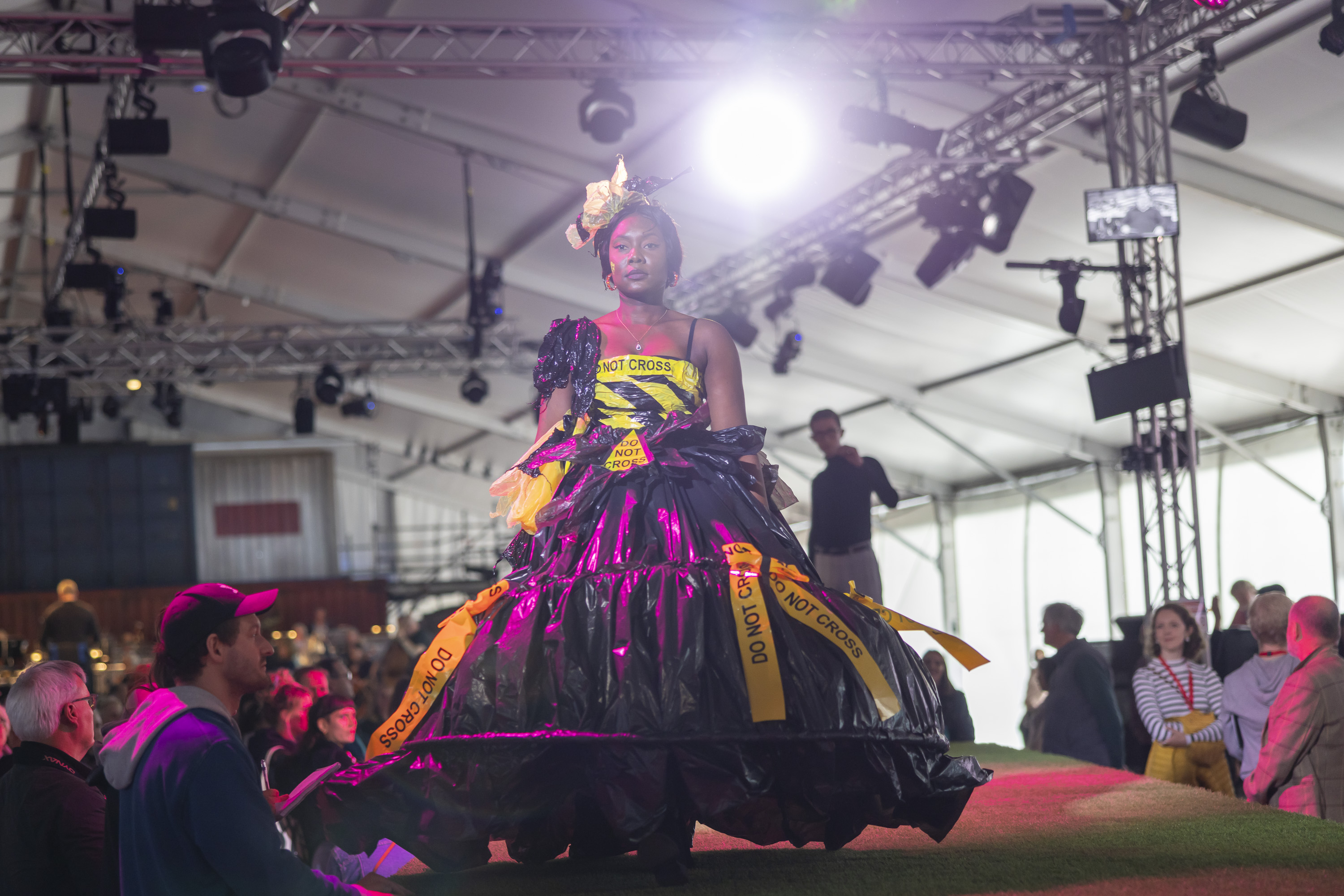
Juliet Enoch in a recycled costume in The Paris Fashion Show in Candide. Scottish Opera 2022. Credit James Glossop.
We have recently taken part in a carbon analysis via the Edinburgh Institute for Climate Change and Royal Bank of Scotland, to assess how and where we can reduce our emissions.
We have taken active steps to reduce the quantities of leaflets, posters and other print materials produced for each opera production or project. This has resulted in thousands of kg of carbon dioxide being offset, enabling World Land Trust (an international conservation charity that protects the world’s most biologically significant and threatened habitats) to protect 124 cubic metres of land.
We have stopped producing single-use vinyl banners on Opera Highlights tours, as these were costly and could not be re-used. Where printed materials are still required, we seek out suppliers who use FSC-approved paper and carbon offsetting measures such as tree planting. We have also stopped poly-wrapping our brochures and are choosing recyclable alternatives.
We have increased the use of e-tickets for our performances, and actively encourage audience members not to print off their tickets to save paper and ink when attending a performance.
We have changed the energy provider in our two main premises in Glasgow to a fully renewable supplier.
Encouraging touring venues to move away from single-use plastics, we support Theatre Royal Glasgow and Festival Theatre Edinburgh in starting their own deposit and return schemes at their in-house cafes and bars.
We encourage visiting artists and staff to bring their own reusable cup and water bottles to our theatre green rooms, as well as to our rehearsal and performance spaces.
Willow Grove Cafe, located in our Production Studios at Edington Street, offers only compostable cups, wooden cutlery, paper straws and uses small local suppliers and locally sourced products wherever possible.
In 2022, we launched a new Scottish Opera gin, and actively strived to make it as sustainable a product as possible: the glass bottle was manufactured using sustainably sourced materials from the UK, FSC approved paper was used for the label and the cap was hand-dipped in gold wax to seal the product and avoid using plastics.

We have reduced the number of vehicles on our Opera Highlights tours from 3 to 2, and we no longer tour a piano which requires its own vehicle, which has reduced fuel consumption.
We encourage staff and visiting artists and creatives to use train and buses, rather than flights, for domestic journeys. When it is not possible to avoid flights, we will aim to book economy class in a new aircraft and offset emissions via a sustainable source. If taxis must be used, we will request the taxi companies we use send electric vehicles as much as possible.
Staff now have the opportunity to sign up to the Commuter Travel Club (CTC) with First Bus, where they can access discounts on travel within the Greater Glasgow area, making commuting more affordable and encourage public transport use.
We have installed electric charging points in our Edington Street car park for our staff to use, and we are making upgrades to our transport fleet to include more electric vehicles.
We currently offer staff a Cycle to Work scheme.
The Last Aliens - Climate Week 2024
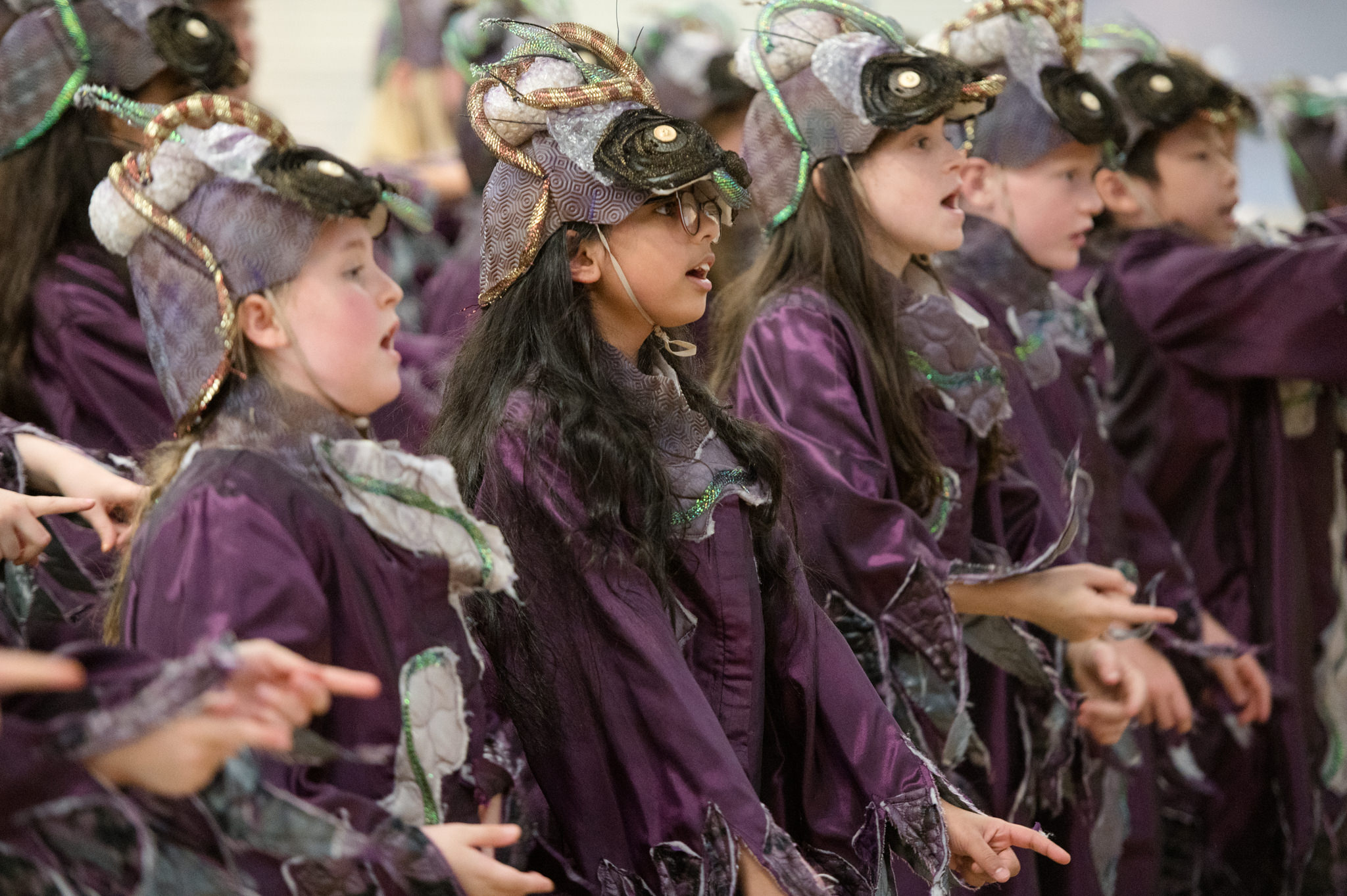
Pupils From Hillhead Primary In Glasgow Perform Scottish Opera's The Last Aliens. Credit Julie Broadfoot.
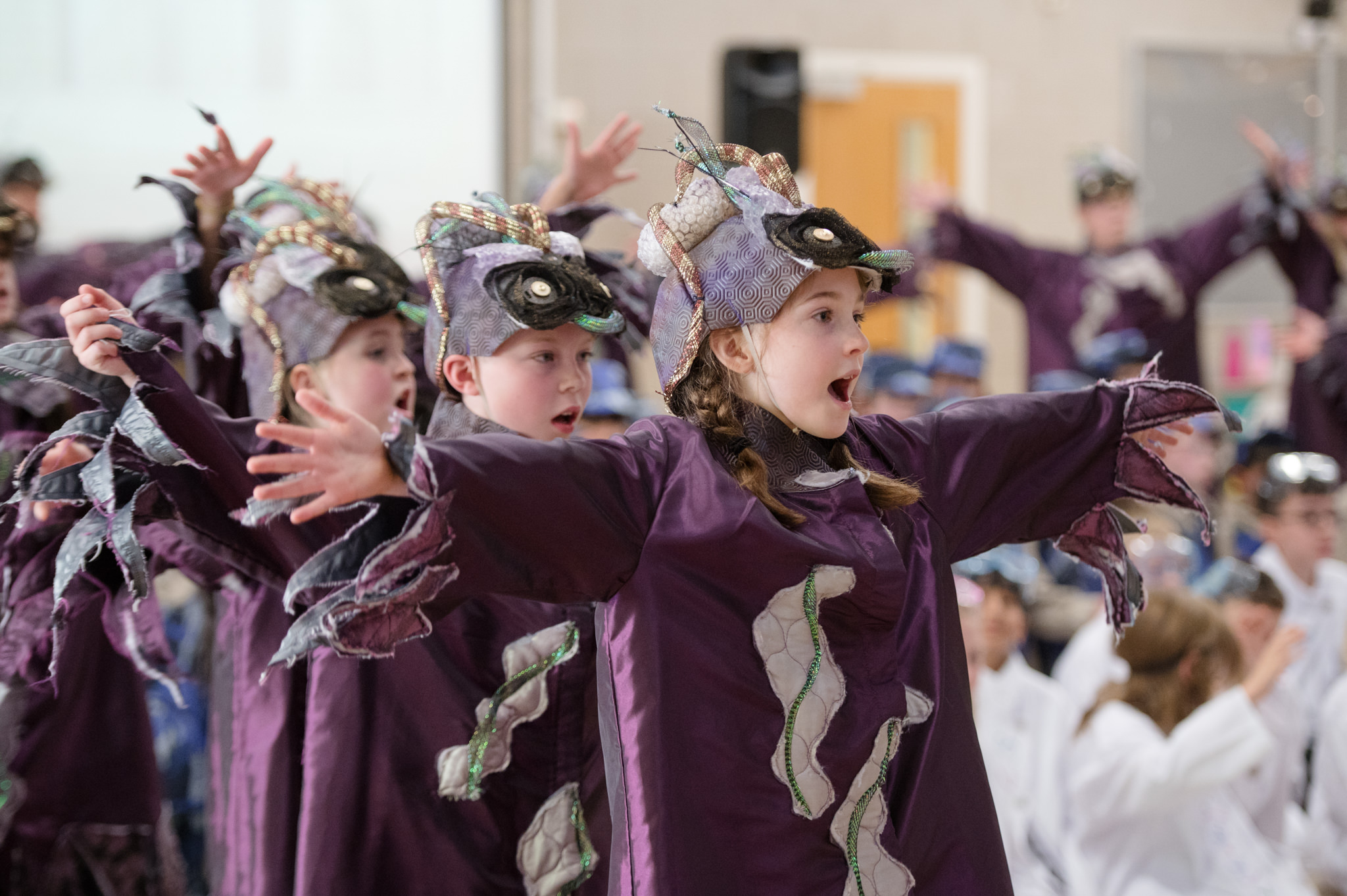
Pupils From Hillhead Primary In Glasgow Perform Scottish Opera's The Last Aliens. Credit Julie Broadfoot.
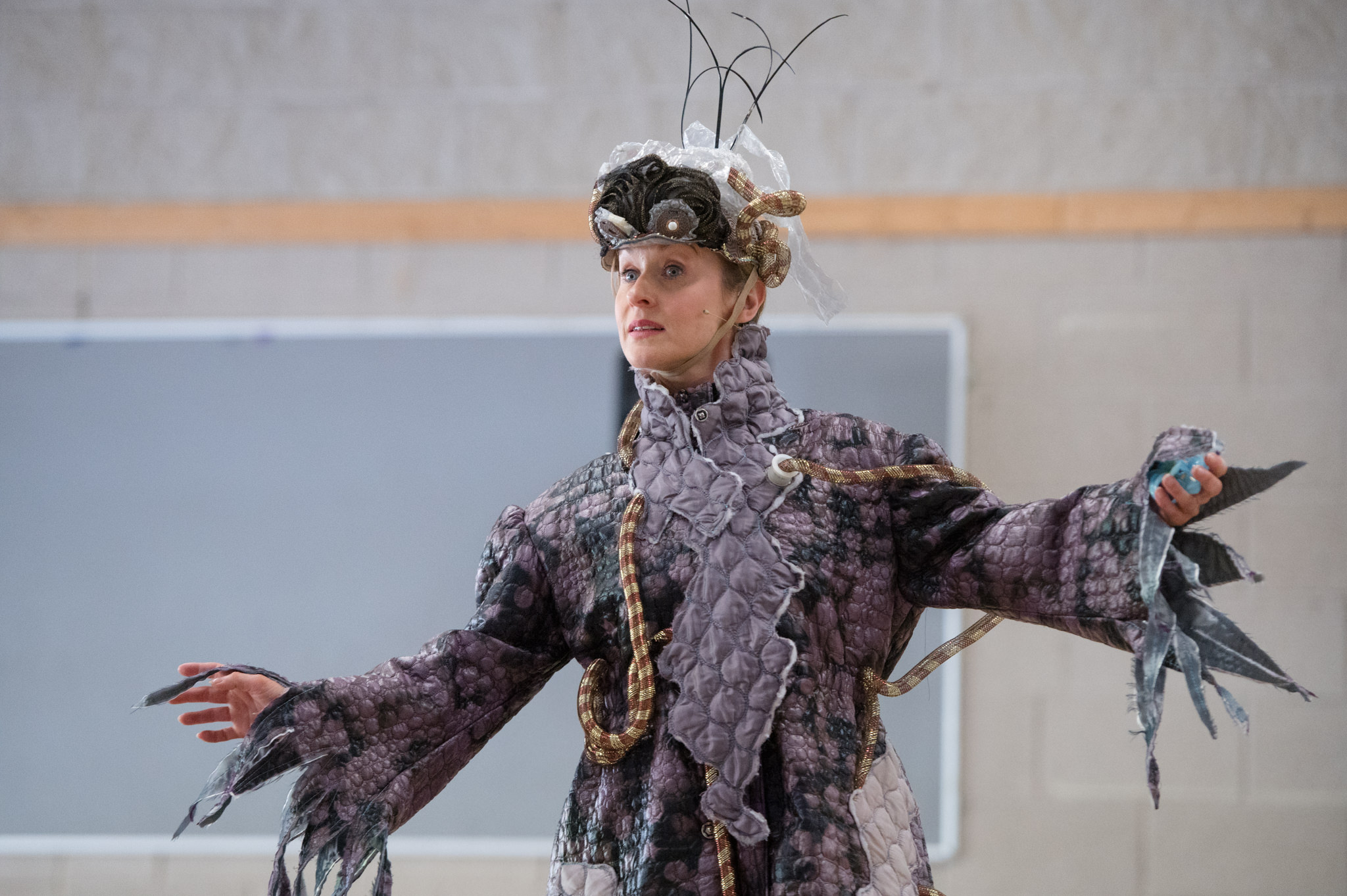
Scottish Opera's The Last Aliens. Credit Julie Broadfoot.

Scottish Opera's The Last Aliens. Credit Julie Broadfoot.
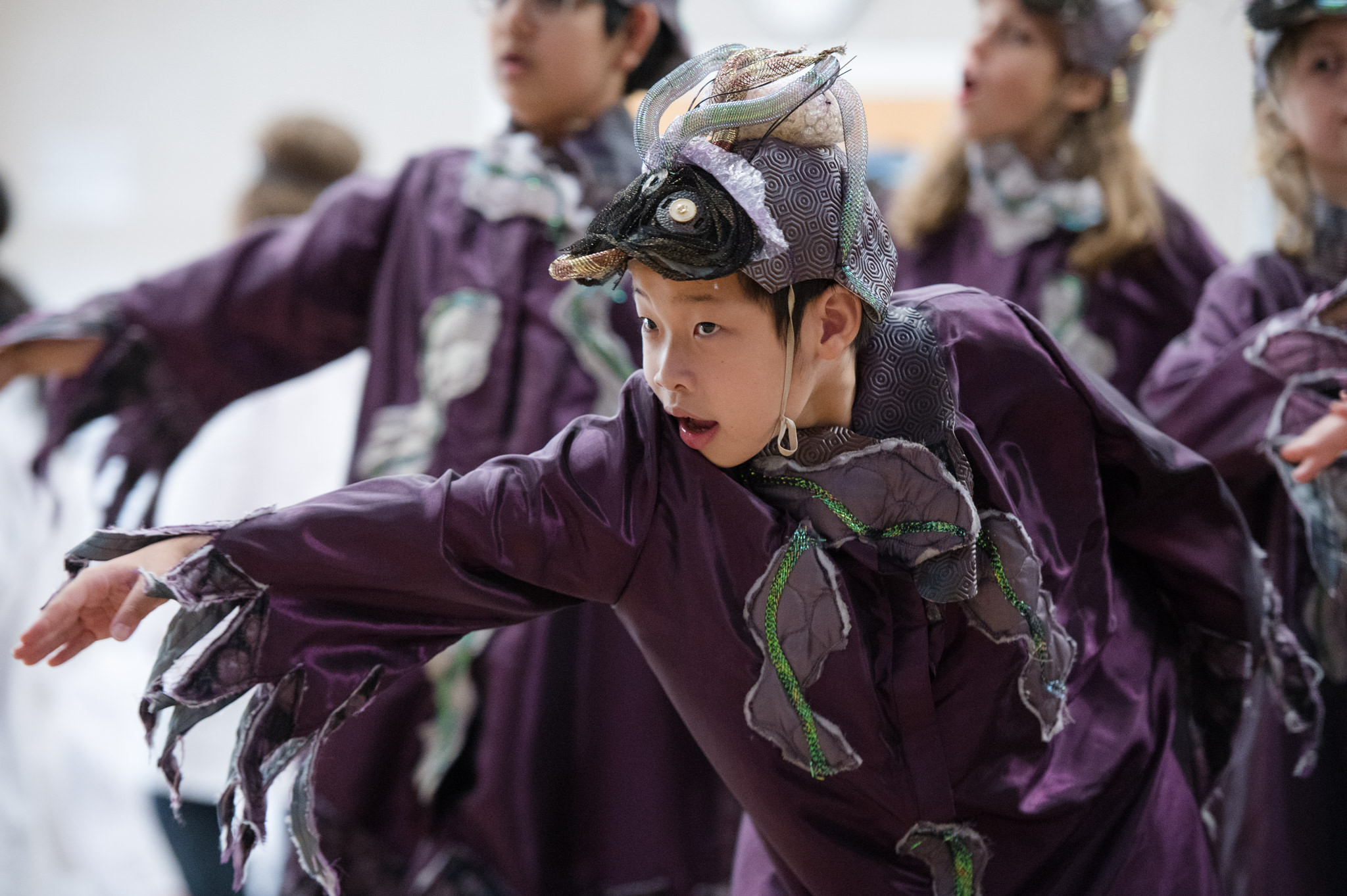
Pupils From Hillhead Primary In Glasgow Perform Scottish Opera's The Last Aliens. Credit Julie Broadfoot.
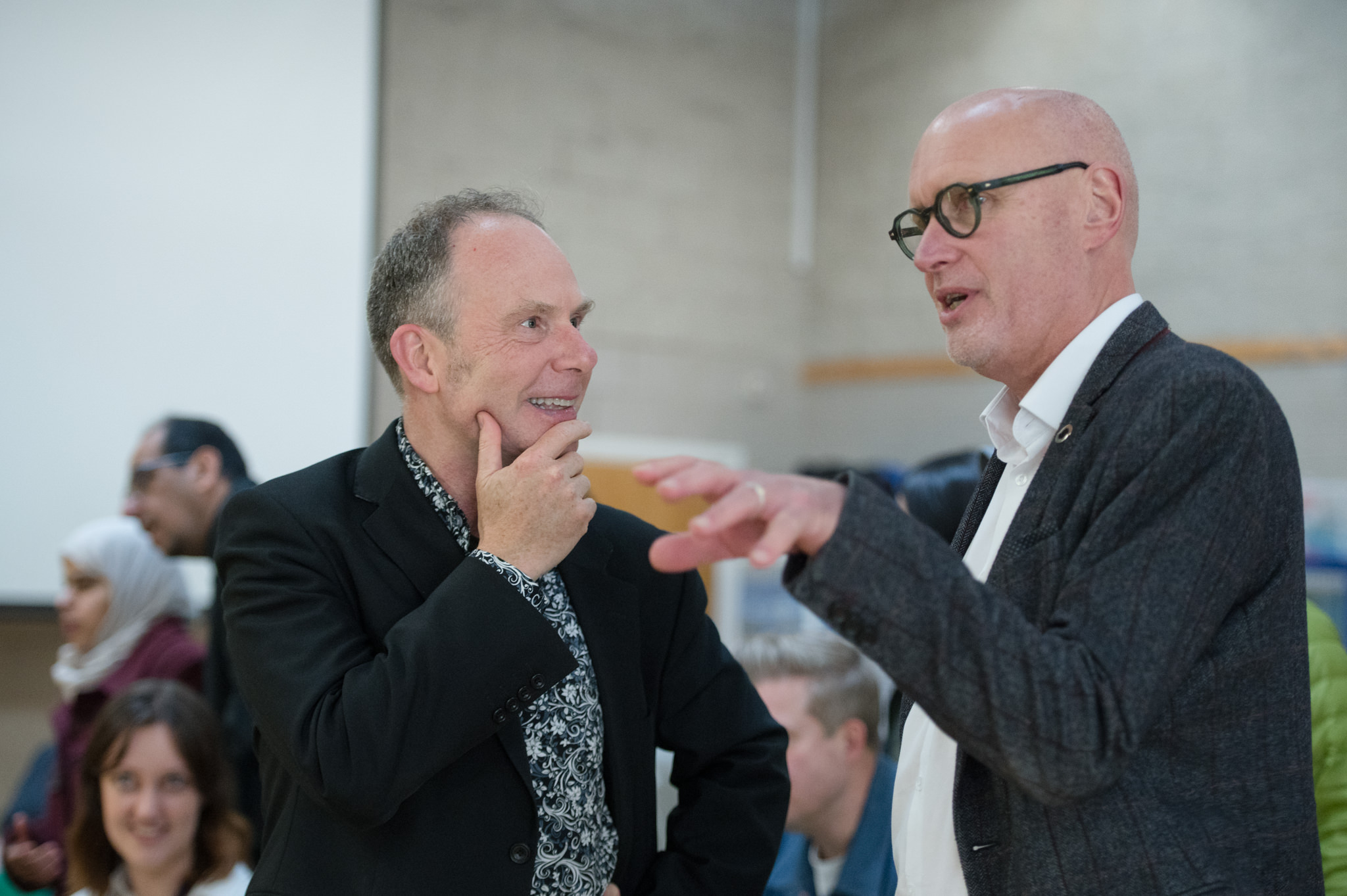
Phil Raines, Joint Deputy Director Of Domestic Climate Change Division At The Scottish Government. Credit Julie Broadfoot.
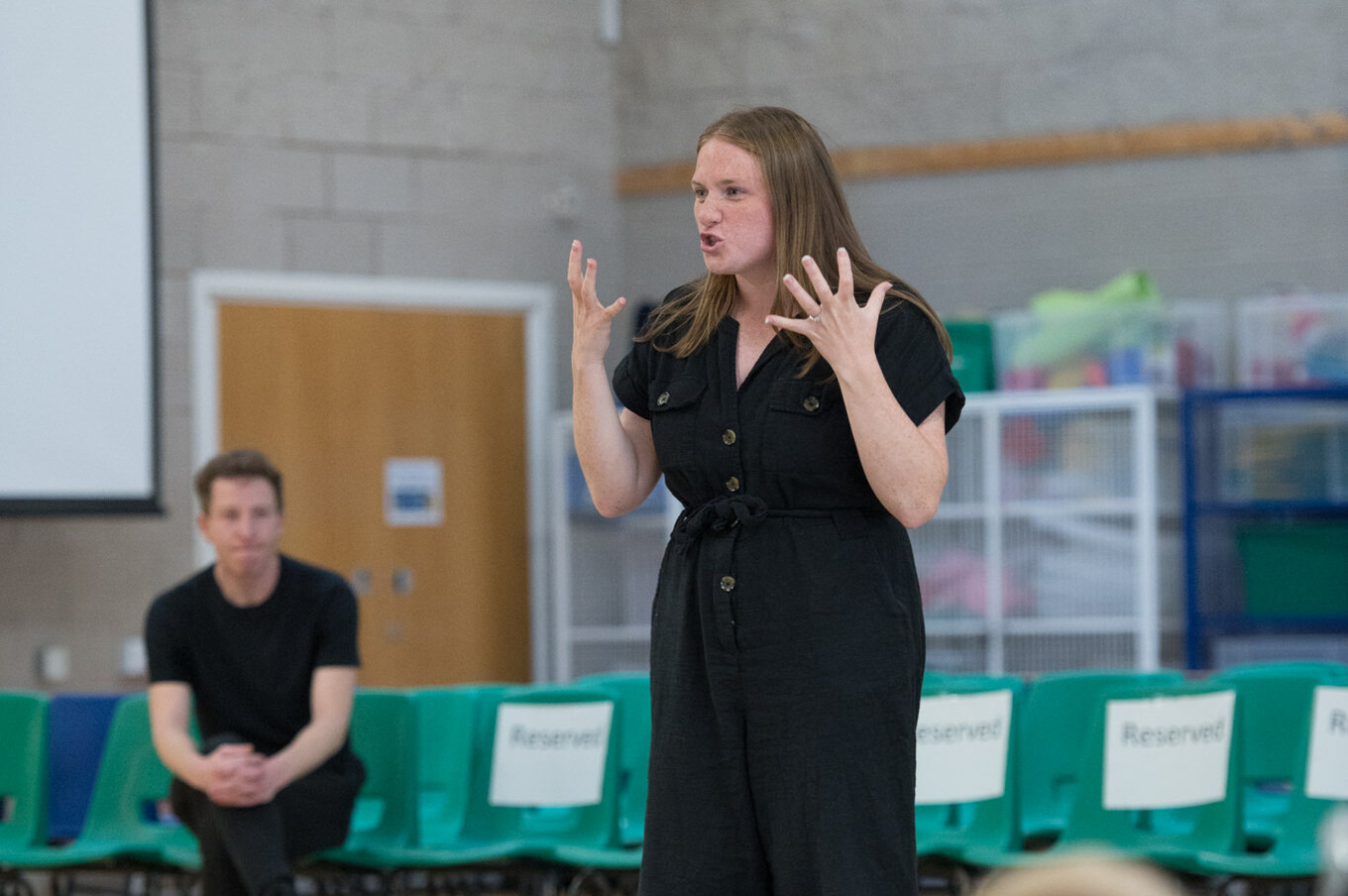
Laura Young, The Award Winning Climate Activist Talks To Pupils At Hillhead Primary. Credit Julie Broadfoot.